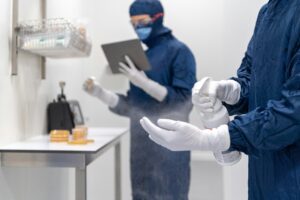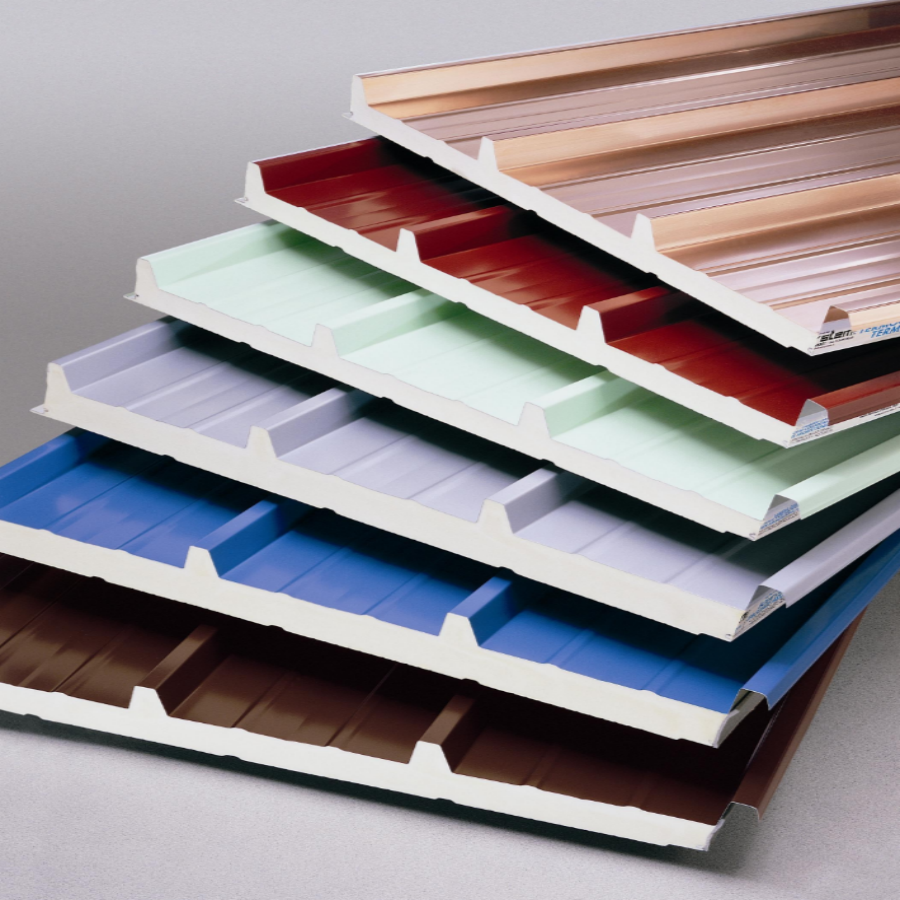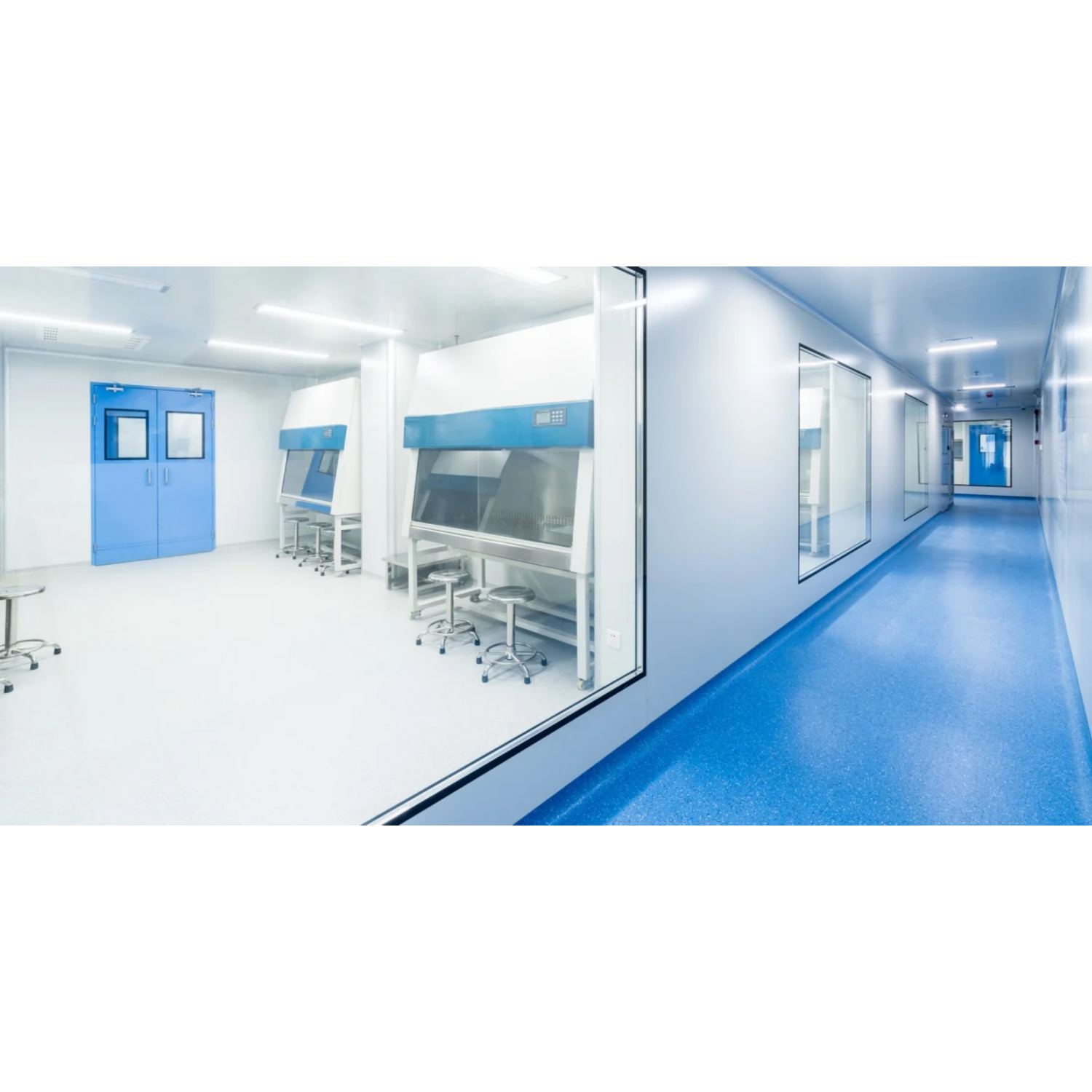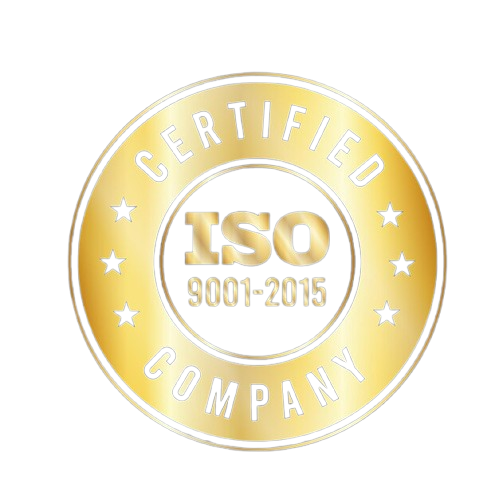
In the biotechnology industry, maintaining a contamination-free environment is crucial for ensuring the safety, quality, and integrity of research, development, and production processes. Whether it’s for manufacturing biologics, conducting genetic engineering research, or producing cell and gene therapies, biotechnology cleanrooms are vital in preventing the introduction of airborne particles, microorganisms, and other contaminants that can compromise delicate processes.
As a trusted biotechnology cleanroom supplier, Wise Link specializes in delivering custom cleanroom solutions that meet the exacting standards of the biotechnology sector. This article will explore the importance of cleanrooms in biotechnology, the unique requirements of biotech cleanrooms, and how partnering with a reliable cleanroom supplier can optimize contamination control and operational efficiency.
Why Biotechnology Requires Specialized Cleanrooms
Biotechnology involves highly sensitive processes, such as the production of biologics, cell culture, and molecular research. These operations often take place at a microscopic level, making even the smallest particle or microbial contamination potentially disastrous. For instance, contaminating a cell culture can lead to inaccurate research results, compromised drug efficacy, or, in the worst cases, unsafe products.
Some key processes in biotechnology that rely on cleanroom environments include:
- Cell and Gene Therapy Production: Ensuring that cells are cultured in a sterile environment to prevent contamination that could affect patient treatments.
- Biopharmaceutical Manufacturing: Producing biologics, vaccines, and other therapeutic agents under strict contamination control.
- Genetic Engineering Research: Conducting experiments with genetically modified organisms (GMOs) that require contamination-free environments for accuracy and safety.
Given these critical needs, biotechnology cleanrooms must adhere to strict regulatory requirements, such as ISO 14644 standards and Good Manufacturing Practices (GMP), to ensure that all processes are conducted in sterile, controlled environments.
Key Features of Biotechnology Cleanrooms
To meet the stringent demands of biotechnology, cleanrooms must incorporate a range of features and technologies that provide optimal contamination control. Here are the essential components of biotechnology cleanrooms:
1. ISO Cleanroom Classifications
Cleanrooms are classified based on the number of airborne particles allowed per cubic meter of air. In biotechnology, cleanrooms typically range from ISO Class 5 to ISO Class 8, depending on the process requirements.
- ISO Class 5: Used for highly sensitive processes such as aseptic drug manufacturing or cell therapy production, where minimal contamination is critical. This class allows a maximum of 3,520 particles (0.5 microns or larger) per cubic meter.
- ISO Class 7 and 8: Used for less sensitive areas such as non-sterile production or packaging, where the particle count can be higher without compromising product quality.
Choosing the correct cleanroom classification is essential for ensuring that biotechnology processes are protected from contamination.
2. HEPA and ULPA Filtration Systems
Airborne particles are one of the biggest contamination risks in biotechnology cleanrooms. HEPA (High-Efficiency Particulate Air) and ULPA (Ultra-Low Penetration Air) filters are used to remove contaminants from the air, ensuring that the cleanroom atmosphere remains free from particles, bacteria, and other microorganisms.
HEPA filters can remove 99.97% of particles 0.3 microns in size, while ULPA filters can trap particles as small as 0.12 microns. These filtration systems are critical in maintaining the sterile conditions required for biotech operations such as cell culture or biopharmaceutical production.
3. Laminar Airflow Systems
Laminar airflow refers to a smooth, unidirectional flow of clean air that sweeps away airborne particles from the cleanroom. In biotechnology cleanrooms, laminar airflow systems are often used in areas where sterility is critical, such as aseptic processing or gene therapy production.
The consistent flow of clean air minimizes the risk of contamination by ensuring that particles are continuously pushed out of the cleanroom and away from sensitive equipment or biological samples.
4. Environmental Control Systems
Biotechnology processes are often sensitive to changes in environmental conditions. For example, temperature and humidity fluctuations can affect the stability of biologics, cell cultures, or enzymes. To prevent this, biotechnology cleanrooms must have precise environmental control systems that regulate:
- Temperature: Maintaining consistent temperatures is crucial for processes such as cell culture, where even small fluctuations can affect cell viability.
- Humidity: High humidity can lead to microbial growth, while low humidity can cause static buildup that damages sensitive equipment. Maintaining the correct humidity levels ensures the integrity of both the process and the products being manufactured.
- Pressure Control: Positive or negative air pressure must be maintained between cleanroom zones to prevent contamination from adjacent areas.
Custom HVAC systems are essential for maintaining the required environmental conditions in biotechnology cleanrooms.
5. Modular Cleanroom Design for Flexibility
Biotechnology is a fast-evolving field, and the ability to quickly adapt cleanroom environments to accommodate new technologies or processes is crucial. Modular cleanroom designs offer the flexibility to expand, reconfigure, or upgrade cleanroom spaces as needed.
Modular panels, often made from PU, PIR, or mineral wool, are easy to install and can be customized to meet the specific cleanliness requirements of biotechnology processes. This flexibility makes modular cleanrooms ideal for biotech companies looking to scale operations or introduce new research and development capabilities.
6. Contamination Control Protocols
Contamination from personnel is a significant risk in biotechnology cleanrooms, as humans are a major source of particles, microbes, and other contaminants. To mitigate this risk, cleanroom designs include strict contamination control protocols, such as:
- Gowning Rooms: Personnel must enter a dedicated gowning area where they don sterile garments, including gloves, masks, and gowns, to prevent contamination.
- Airlocks: These buffer zones control the flow of personnel and materials between clean and non-clean areas, ensuring that contaminants do not enter the cleanroom.
- Pass-Through Chambers: Used to transfer materials into the cleanroom without compromising the sterile environment.
By following these protocols, biotech cleanrooms can maintain sterility even as personnel and equipment move in and out of the space.
Why Partner with a Biotechnology Cleanroom Supplier
Designing, installing, and maintaining a biotechnology cleanroom requires specialized knowledge and experience. Partnering with a reputable biotechnology cleanroom supplier like Wise Link offers several advantages:
1. Custom Cleanroom Design
Every biotechnology process is unique, and cleanrooms must be designed to meet specific contamination control requirements. As an experienced cleanroom supplier, Wise Link provides custom cleanroom designs tailored to the needs of biotech companies. From airflow systems to modular panels, we create cleanrooms that ensure the highest levels of sterility and compliance.
2. Compliance with Regulatory Standards
Biotechnology cleanrooms must comply with strict regulatory standards, including ISO 14644, GMP, and FDA guidelines. Wise Link designs cleanrooms that meet these regulations, ensuring that your facility is equipped to pass audits and inspections without issue.
3. Modular Cleanroom Solutions
Modular cleanrooms offer biotech companies the flexibility to expand or reconfigure their cleanroom environments as needed. Wise Link specializes in modular cleanroom construction, providing biotech facilities with scalable solutions that can be quickly installed and adapted to changing production needs.
4. Full Project Management
From initial design consultation to installation and validation, Wise Link provides end-to-end project management for biotechnology cleanrooms. Our team of experts handles every aspect of the project, ensuring that your cleanroom is fully operational, compliant with regulations, and ready to support your biotech processes.
5. Ongoing Support and Maintenance
To maintain optimal performance, biotechnology cleanrooms require regular cleaning, maintenance, and validation. Wise Link offers ongoing support to ensure that your cleanroom remains in peak condition, minimizing downtime and protecting your sensitive biotech operations from contamination risks.
The Importance of a Trusted Biotechnology Cleanroom Supplier
Biotechnology cleanrooms are critical for protecting sensitive processes, ensuring product safety, and maintaining regulatory compliance. Partnering with a reliable biotechnology cleanroom supplier like Wise Link ensures that your cleanroom is designed, installed, and maintained to the highest standards, providing the contamination control needed to support advanced biotech operations.
At Wise Link, we understand the complexities of biotechnology cleanrooms and offer tailored solutions to meet the unique needs of the biotech industry. From modular designs to custom airflow systems, we deliver cleanrooms that optimize sterility, compliance, and operational efficiency. Contact us today to learn more about our biotechnology cleanroom solutions and how we can help you achieve your contamination control goals.
FAQs
- What is the role of a biotechnology cleanroom supplier?
A biotechnology cleanroom supplier designs, installs, and maintains cleanrooms that provide contamination control for biotech processes like cell culture, gene therapy production, and biopharmaceutical manufacturing. - What cleanroom classification is typically used in biotechnology?
Biotechnology cleanrooms often range from ISO Class 5 to ISO Class 8, depending on the level of sterility required for the process. - How do HEPA filters contribute to biotechnology cleanroom sterility?
HEPA filters remove 99.97% of airborne particles, ensuring that the cleanroom remains free from contaminants like dust, bacteria, and other microbes that could compromise sensitive biotech processes. - Why are modular cleanrooms beneficial for biotechnology?
Modular cleanrooms offer flexibility, allowing biotech companies to expand or reconfigure cleanroom spaces quickly and cost-effectively to meet evolving production needs. - How does Wise Link ensure regulatory compliance in biotech cleanrooms?
Wise Link designs biotechnology cleanrooms to comply with ISO 14644, GMP, and FDA regulations, ensuring that your facility meets all necessary standards for sterility and contamination control.
Optimize Your Biotechnology Facility with Advanced Cleanroom Solutions
Custom-Designed Cleanrooms for Contamination Control and Compliance. Contact Wise Link Today for a Free Consultation and Tailored Quote!





